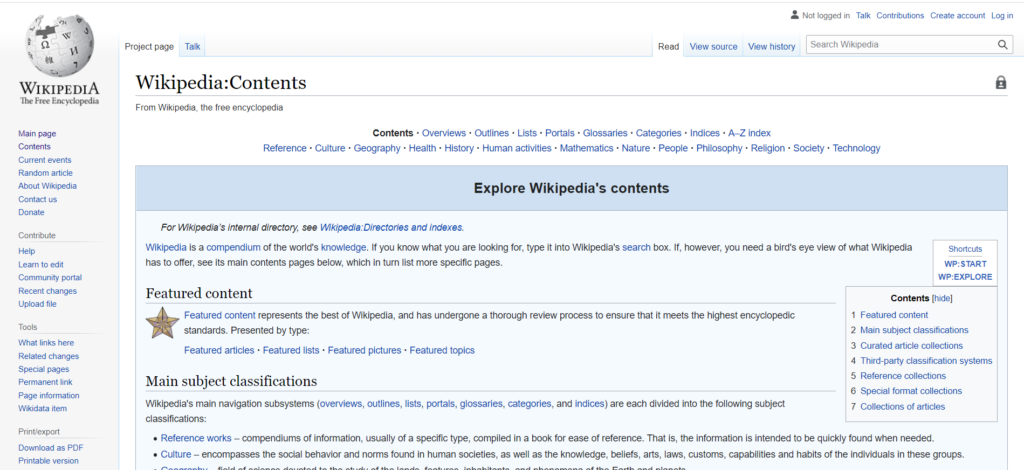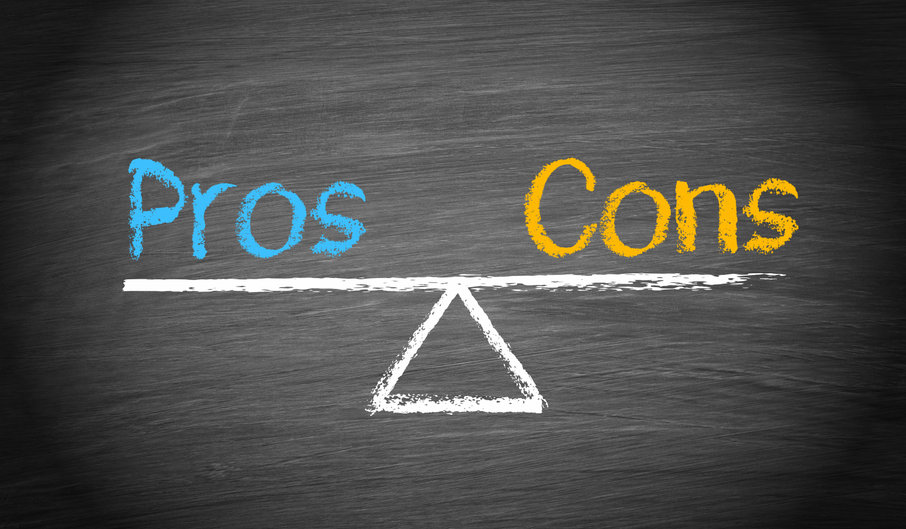
Wikipedia may not be the first thing that comes to mind when you think about content marketing. Yet, despite the lack of traditional peer review, Wikipedia pages rank at the top of Google search results. This makes it a pillar resource for initial research of all kinds. But can it play a part in your marketing strategy?
Wikipedia Basics
Wikipedia is a free, multilingual, online encyclopedia overseen by the not-for-profit Wikimedia Foundation. The platform is comprised of millions of entries, written and maintained by a community of volunteers through a model of open collaboration. Pages are interconnected by links to create a network of accessible and current information about an expansive variety of subjects.
Wikipedia states and enforces that it is not a promotional medium and that all articles are written from a neutral perspective, which is often achieved over ongoing updates to reach consensus. Editors, known as Wikipedians, anonymously contribute materials to the platform, much like open-sourced encyclopedia entries. By simply clicking “edit,” editors can complete a variety of tasks from fixing typos, to removing vandalism, resolving disputes and continually updating and perfecting content.
Pros and Cons of Collaborative Information

Because of the open-edit nature of Wikipedia, there are pros and cons to the platform.
Cons include:
- A lack of peer review from experts results in articles mostly being written and edited by amateurs.
- The open-edit feature means there is a risk of vandalism and unverified information.
Pros include:
- The large and diverse editor base fights bias and censorship present in some smaller or regional publications. A neutral viewpoint is achieved through open collaboration.
- Open collaboration results in a huge variety of content that can be updated quickly and constantly.
- Open collaboration has its own set of public checks and balances. Information is updated by consensus, rather than limited points of view from people of traditional power structures.
Three Steps to Achieving a Presence on Wikipedia
A Wikipedia page can help your brand achieve online visibility, enhance credibility and communicate important brand information to your target audiences. Due to its open-edit nature, the path to a Wikipedia page isn’t always a straight line. That said, here are three steps to earning a presence on the world’s largest encyclopedia website:
- Create your Wikipedia page. Wikipedia states that it will support the creation of an entry, “if a topic has received significant coverage in reliable sources that are independent of the subject, it is presumed to be suitable for a stand-alone article or list.” While anyone can create a Wikipedia page, there are distinct guidelines that must be met to get a page approved:
- “Significant coverage” means there is content that addresses your topic directly and in detail so that no original research is needed. Significant coverage is more than a mere mention, but it is not necessarily required to be the main topic of the source material.
- “Reliable” means that the sources referenced have “editorial integrity to allow verifiable evaluation of nobility.” Sources can include published works in all forms and media, and in any language, allowing for a wide spectrum of possible sources that must be reinforced by other sources. Availability of secondary sources to support the subject is a common test for “notability.”
- “Independent of the subject” means the source must be produced by an individual or group unassociated with the article’s subject or someone affiliated with it. For example, advertising, press releases, autobiographies and the subject’s website are not considered independent.
- “Presumed” means that significant coverage in reliable sources creates an assumption, not a guarantee, that a subject merits its own article.
- Maintain your Wikipedia page. After you create your page, maintenance is key. Wikipedia editors are thorough and constant. In fact, Wikipedia develops at a rate of over 1.9 edits every second. Consider what goals you aim to accomplish with your company or individual Wikipedia profile. Keep in mind that neutrality is required and promotion is barred. An effective Wikipedia presence provides the most essential information on a subject. It directs readers toward extended definitions or further information channels, without bias. Wikipedia allows you to subscribe to alerts for certain pages. Sign up for these alerts and commit to the continued maintenance of your Wikipedia content.
- Position relevant backlinks in other articles. While Wikipedia backlinks are no-follow, meaning they do not contribute to SEO, they remain important internet real estate due to the high traffic of Wikipedia articles. Wikipedia backlinks position content as a vital resource to readers. Don’t just submit any article. Find articles that are both relevant to your expertise and in need of updates or expansion. Seek to contribute only high-quality content that meets Wikipedia’s criteria as a reliable source. Otherwise, it’s possible to have your link blacklisted. Links should also lead directly to the content (no landing pages) and have properly formatted citations.
Wikipedia Can Position Experts

Wikipedia has a different set of rules from other content mediums like social media, blogs or B2B publications. But positioning yourself within its widely accepted information network can result in visibility and credibility with a diverse audience. While not every Wikipedia user may fall into your target market, the exposure and reinforcement of this collaborative encyclopedia illustrate your thought leadership in a neutral and knowledge-centric environment.
